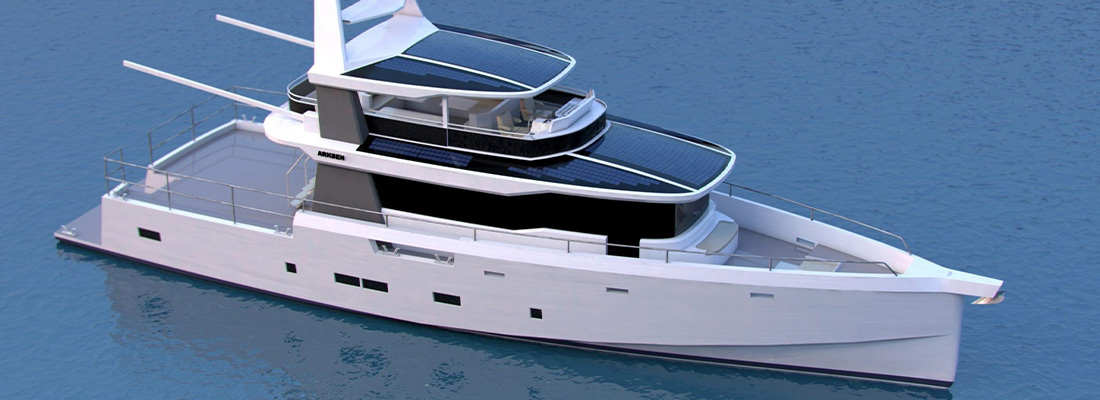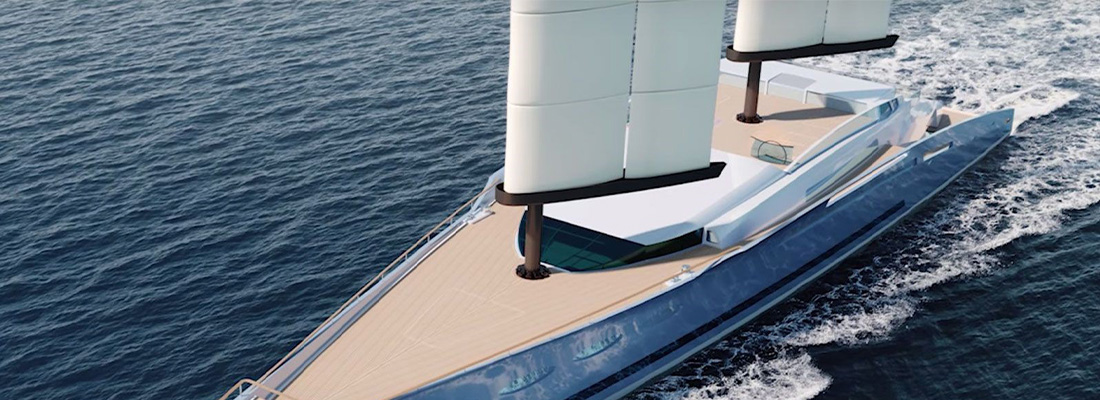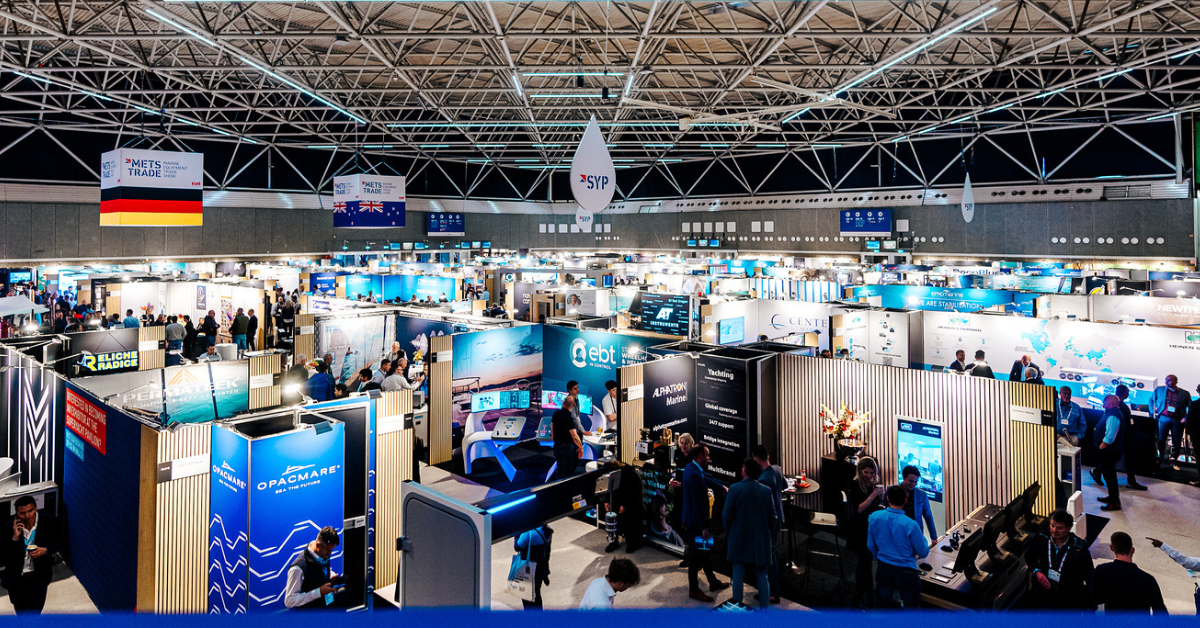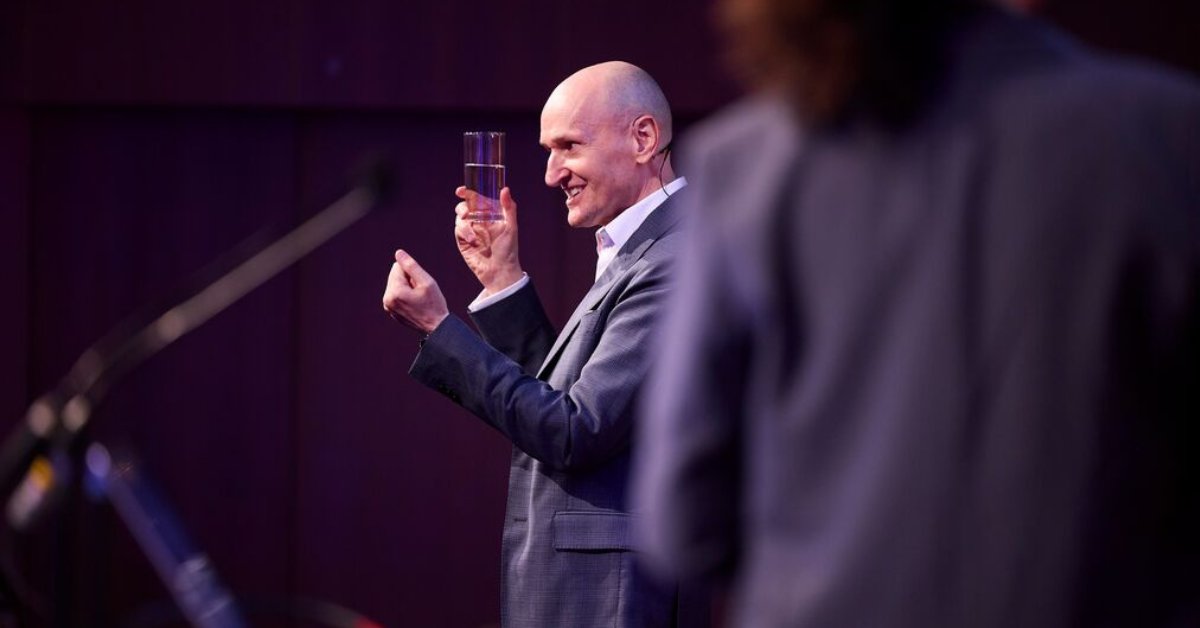Are Superyachts setting the pace on sustainable creativity?
 Peter Franklin
Peter Franklin
According to the last published report by Boat International on the status of the global order book for Superyachts, 2019 saw new build activity down by about 3%, with 807 yachts over 24 metres on order, compared to 830 the year before. It remains to be seen how the statistics for 2020 will look at the end of this extraordinary and unprecedented year, but the trend towards ever larger vessels seems to be continuing, with no less than 21 megayachts of over 100 metres under construction.
The report also noted that more projects than ever are being designed and built with highly customised levels of innovation, and judging from recent announcements by several yards, it seems that a lot of this ingenuity is being targeted towards making superyachts more genuinely sustainable over their operational lifetime.
Explorer with sustainability credentials
Another point noted in the Boat International report is that more Expedition type yachts are in build, showing an increase of over 5% over 2018. So, it seems that more owners are willing to venture further at displacement speeds in order to explore the wonders of nature in some of the less well frequented cruising destinations. Could it be, that this type of owner also tends to demand a yacht with more sustainability credentials?
One such example is taking shape at the Wight Shipyard on the Isle of Wight, an island off the south coast of England famous for its maritime history, (the first America’s Cup was held there in 1851). The Arksen 85 Explorer Yacht is part of a combined mission created by the Arksen Foundation. They are also a partner in the ‘Yachts for Science’ program which will encourage owners to connect with scientists and to assist with research and conservation projects during their expedition cruise itineraries.
The yacht’s hull and superstructure are built in aluminium, the hull design is optimised to reduce fuel consumption and lower emissions, and the interior utilises a wide range of sustainable materials including soft furnishing fabrics made from recycled plastic bottles. We notice recently that more and more boat designers and builders are opting for aluminium in preference to composites: A; for its strength to weight characteristics, and B; because it can be sourced from recycled products, and fully recycled again at end-of-life. In other words, a truly circular construction material.
The Arksen 85 (25.5 metres) will be fitted with a full hybrid propulsion package, an energy management system, and up to 7kW of zero carbon electrical power will be delivered from her solar array. The use of thermal reclaim technology will optimise the efficiency of the heating and ventilation systems onboard.
Feadship, pushing the sustainability boundaries ever further
At last year’s METSTRADE, Henk de Vries, CEO of superyacht builder Feadship, was interviewed at the I-nnovationLab, following his Breakfast Briefing presentation. Henk referred to IMO GHG emissions, targeting a 50% reduction by 2050, and stated that his company are striving for zero emissions by 2025. Admitting that this is a stretch target, but stressing the importance of being bold and dedicating resource to the challenge, he said that he was confident the whole industry could be at zero emissions by 2030. De Vries was instrumental in establishing the Water Revolution Foundation, a collaborative initiative which he Chairs, and is aimed at encouraging the entire yachting industry to future-proof the health of our oceans and waterways.
So, Feadship are pushing the boundaries, building ever more sustainable superyachts, and adopting hybrid, electric and eventually hydrogen powered propulsion systems. They are also focusing on every aspect of construction, and making sure that materials come from fully sustainable resources. And, via the Water Revolution Foundation, developing state-of-the-art measurement tools and training programmes that will transparently verify exactly how green a superyacht is over its entire life cycle.
Earlier this month Feadship released a video entitled: ‘Eco Friendly Yacht of the Future,’ and some of the highlights from this futuristic design initiative are proof positive of the company’s dedication and commitment to building the most sustainable superyachts in the coming decades.

Key points about the Eco-Explorer
This innovative yacht concept is the brainchild of Merveille Yachting, a French based superyacht design studio, and has been introduced to Feadship as a ‘ready to go’ project looking for the right environmentally conscious and adventurous owner. Described as the first of a new generation of ‘Wing Yachts,’ the concept takes the best of both worlds from sail and motor driven vessels. This results in three distinct advantages according to Nicolas Cantenot one of Merveille’s founding partners. “It is a genuinely eco-responsible superyacht, with lots of space, and a huge amount of autonomy,” he told Feadship’s commercial Director, Bas Nederpelt.
The most striking feature when you look at the profile of the yacht are the massive wing sails with a total surface area of 782m2. These can apparently drive the 77 metre efficiency optimised hull through the water, with something like twice the energy of a conventional rig of the same size. And with a beam of just over 19 metres, the vessel has acres of deck and cabin space, with the kind of sea-keeping stability that motor yacht owners and their guests usually demand.
Summing up the sustainability features Cantenot said, “we have created a yacht which not only reduces energy consumption, but also creates onboard renewable energy in three different ways. Firstly, by regenerating the kinetic energy produced by the wings via underwater turbines, secondly with vertical axis wind turbines on top of the masts, and added to that, we have the power from solar panels.” The end result can deliver fuel savings of between 50 and 70% compared to a motor yacht of the same size, and the range is almost endless with up to 350 Nm per day cruising range possible, at zero fuel consumption in the right wind conditions.
Water Revolution Foundation’s YETI Tool, coming soon
Since the launch of WRF which coincided with METSTRADE 2 years ago, the Foundation’s initiator Dr. Vienna Eleuteri has been busy with her colleagues in Amsterdam, and working with a number of superyacht builders, designers and naval architects, in order to build the data input for their computational sustainability tool. The full details of the tool’s methodology are expected to be published in March 2021 and it will be known as YETI (Yacht Environment Transparency Index.) The system will be capable of measuring a superyacht’s environmental impact over its entire life cycle, from the building process, through to the vessels operational years of service, including raw materials, energy consumption, emissions and various other impacts upon the health of the oceans.
Find out more at METSTRADE Connect
Vienna Eleuteri is a speaker in the Sustainability Panel Discussion entitled: ‘The Future of Greener Boating’ which will be broadcast at 13.45 on 10th December as part of the Connect virtual show programme, with a live question and answer session afterwards.
All professionals in the leisure marine industry are welcome to register free of charge for the event HERE.


